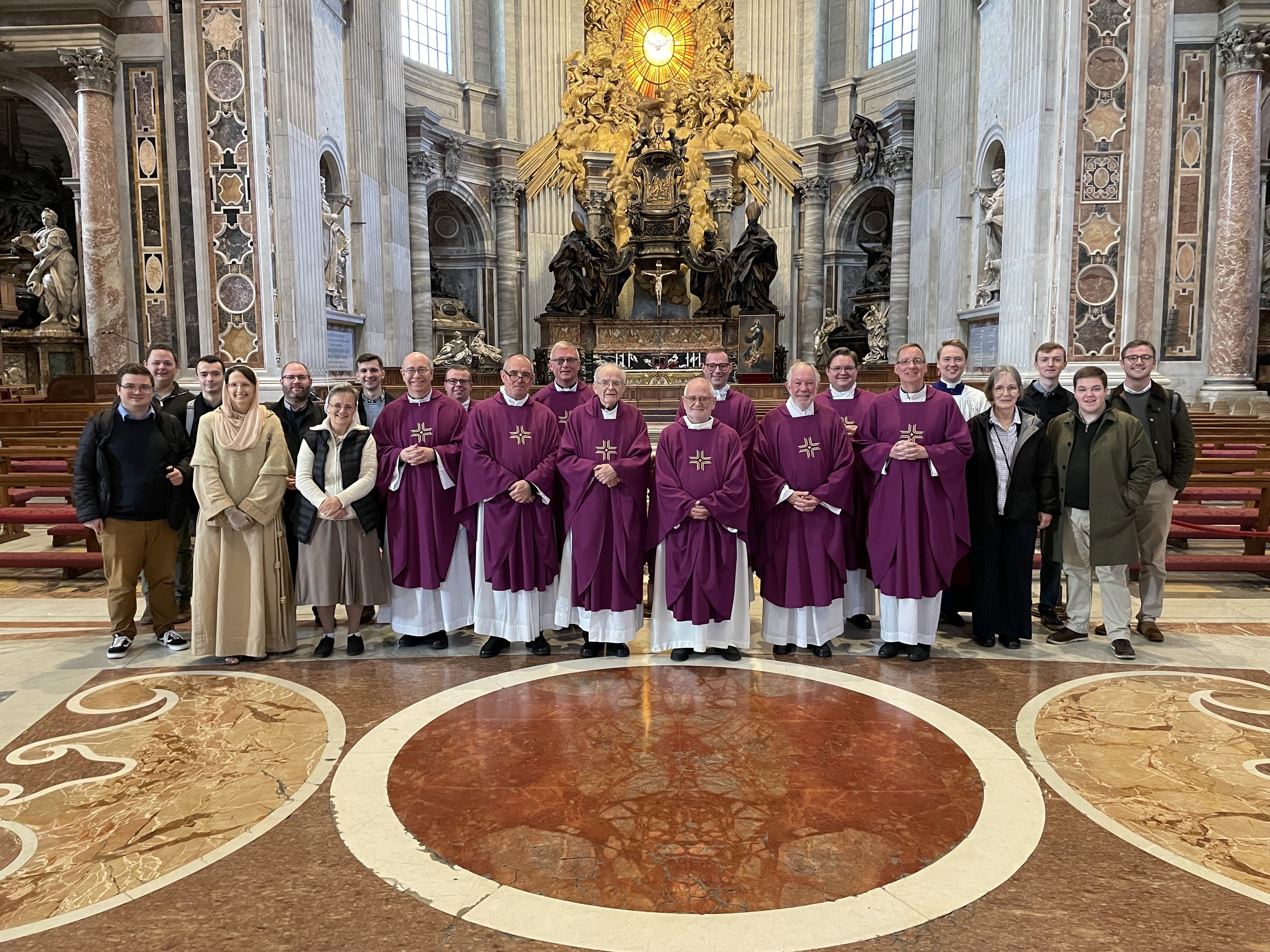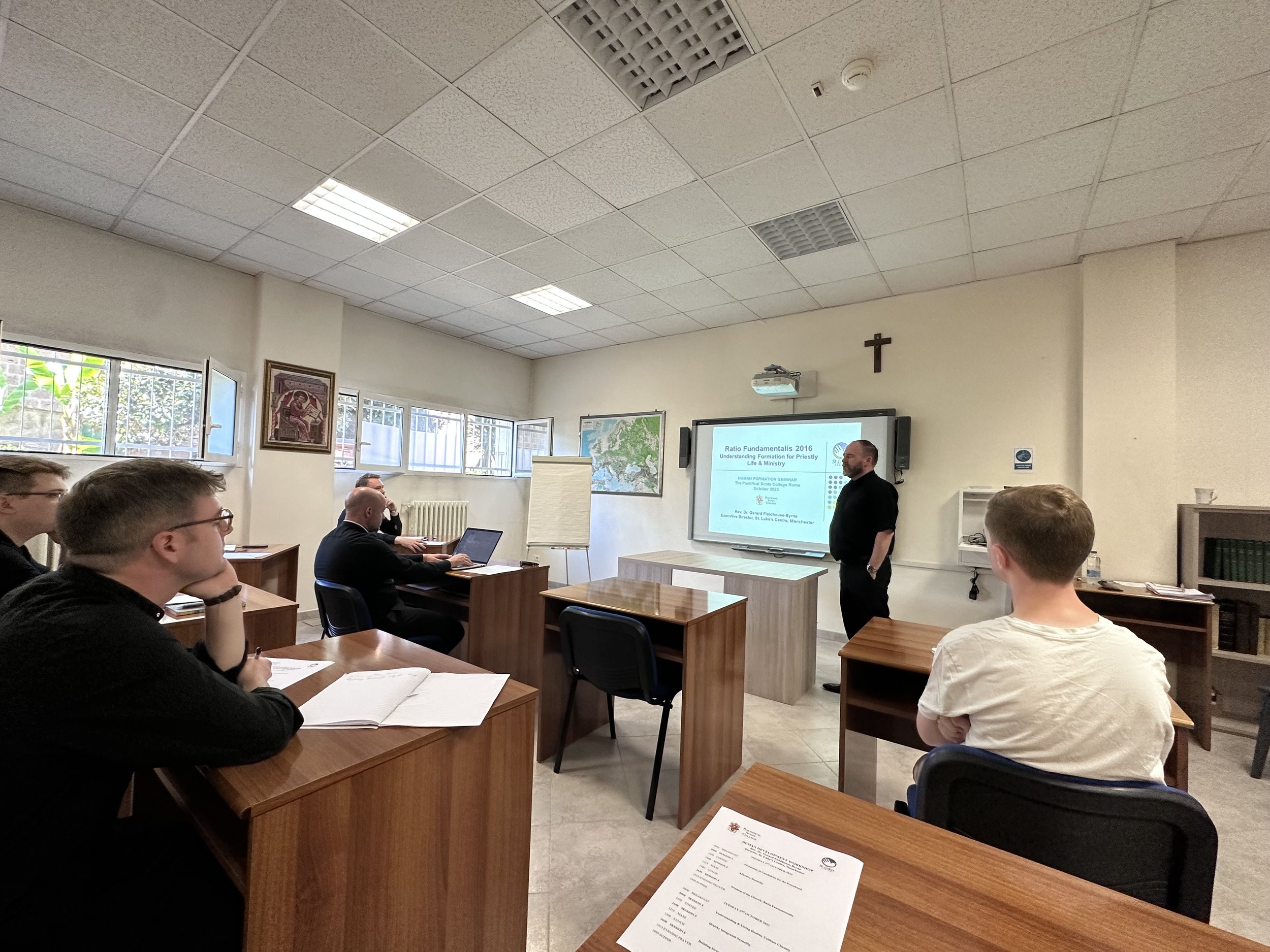
Human Formation
Human formation is the “foundation of all priestly formation” (Pastores Dabo Vobis, 43) and aims at an integrated growth of the individual seminarian to achieve balance and integration in all aspects of the human personality.
Human formation seeks to cultivate a sense of personal responsibility that flows from a well-formed conscience so as to have a true sense of self that is capable of relating and working well with others for the sake of the People of God.
Human formation is rightly concerned with the seminarian’s ability to form and maintain mature and appropriate relationships that demonstrate his acceptance, not only of the standards expected by society but also a willingness to live by and uphold the teaching of the Gospel as it is set out in the Church’s Magisterium that he may mature “in view of an authentic exercise of priestly ministry.” (The Gift of the Priestly Vocation, 94)
In the College, human formation has, along with all the other strands of formation, those aspects which are formal and informal. The formal aspect is delivered in weekend workshops during the year by qualified practitioners (often psychologists) who give of their expertise to encourage the ‘integrated growth’ of the individual as envisaged by the Church’s documents on formation.
The informal aspect of human formation comes from the daily interaction of the individual seminarian with those who live in the same community. Living in close proximity with others for an extended period of time helps the seminarian to understand what of their own behaviour needs to be modified while also learning how to live with others. The community is the place where character is formed and it is successful when each is able to grow closer to the ideal set before us in the person of Jesus Christ, the perfect human being.


